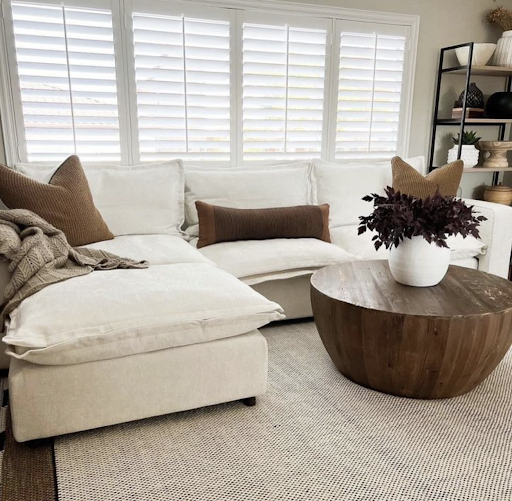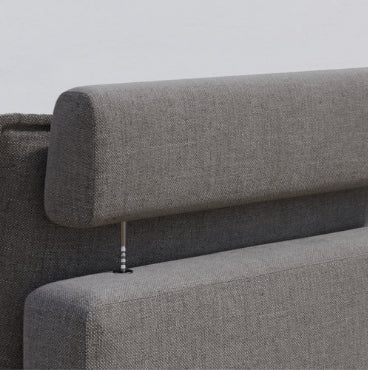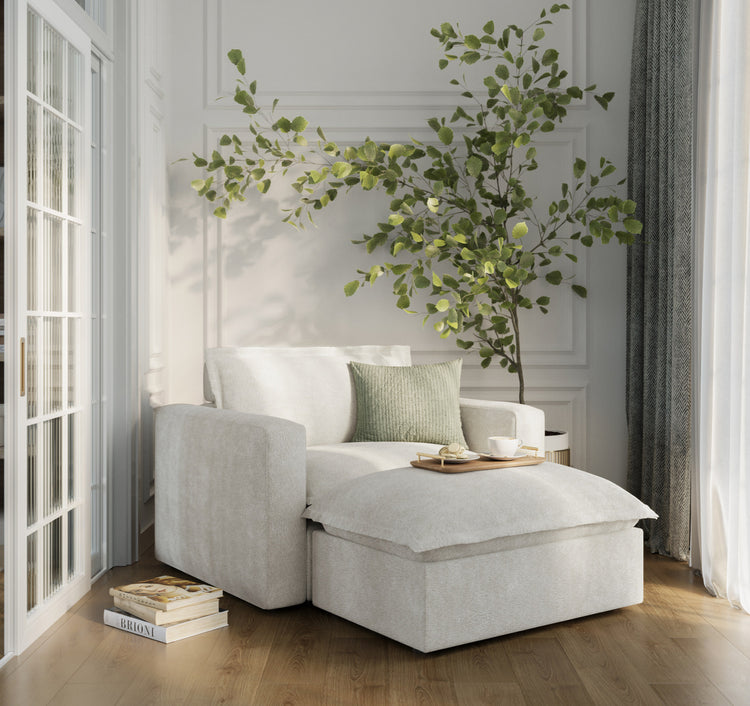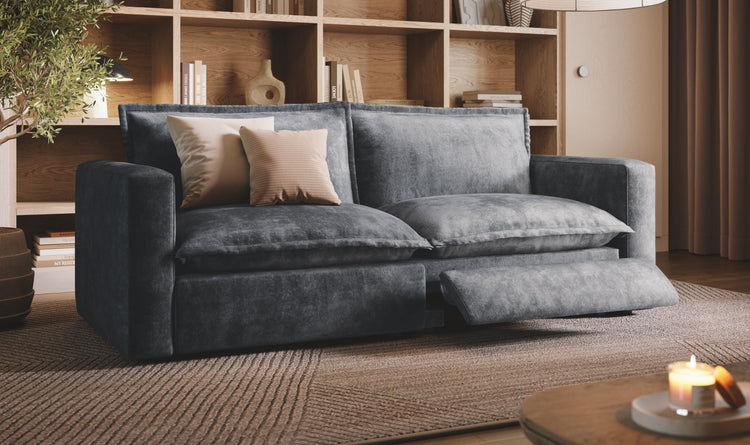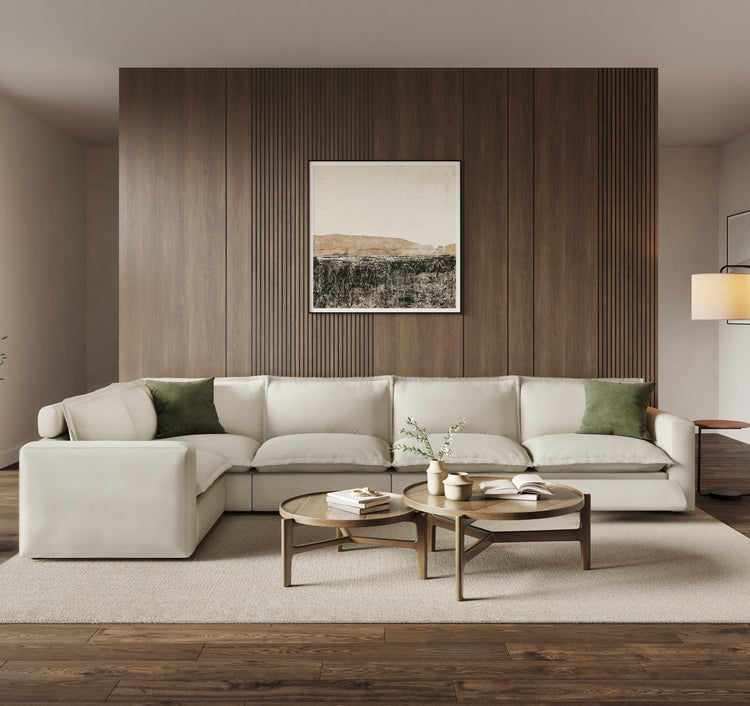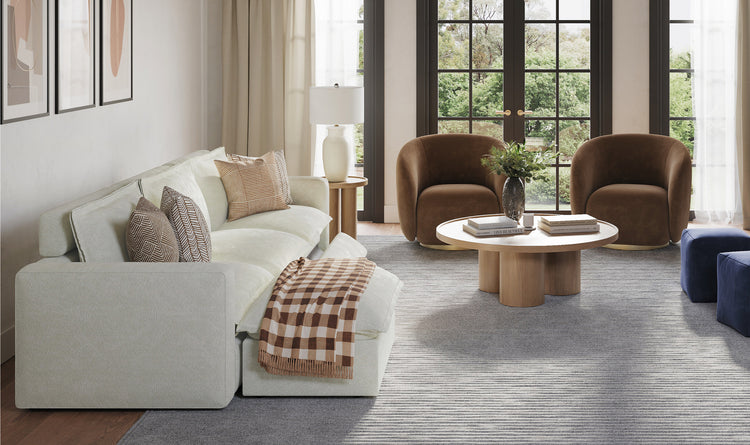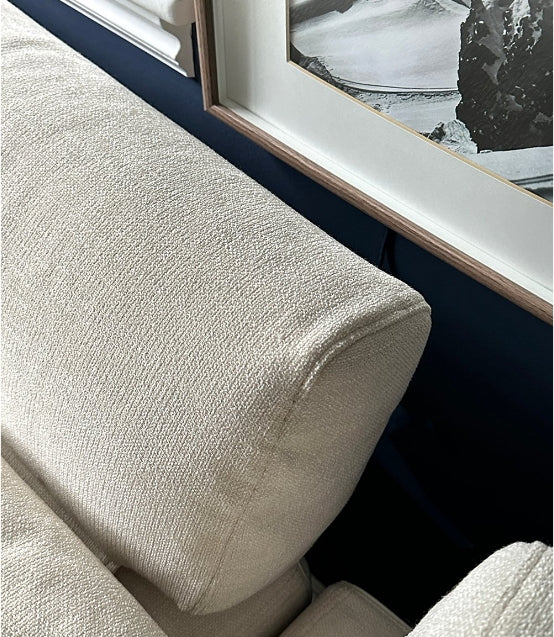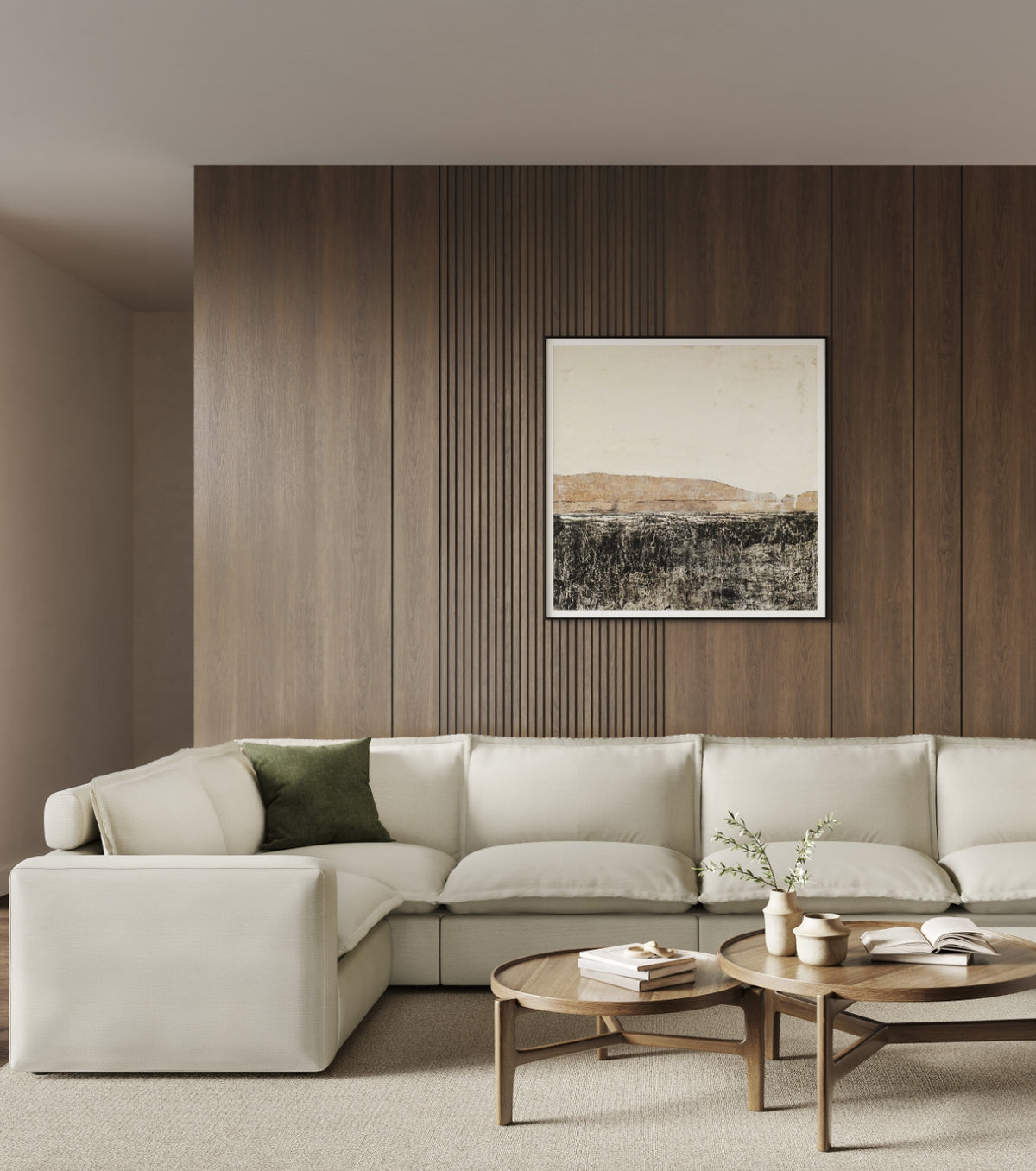Introduction
The longstanding question of whether to position a sofa flush against the wall or allow it to stand freely in the room is something to consider when designing your living space. Both placements have advantages, and there is no universally superior choice. The optimal decision will be based on the distinct characteristics of your space and layout combined with your aesthetic preferences.

Let's dive deeper to understand when wall-anchored and freestanding sofa placements should be used and what would be the best decision for your living space.
5 Benefits of Securing Your Sofa Against the Wall
Regarding sofa placement, pushing your sofa against the wall has some solid layout and visual perks that make it a prime option for many living rooms.
1. Maximize Precious Square Footage
In a tight room, pushing the sofa against the wall efficiently frees up valuable floor space by eliminating the space behind the sofa. This creates more area for walking between furniture and allows you to incorporate additional seats, tables, or storage pieces.
2. Create a Classic, Anchored Look
Sofas against the wall establish a traditional, structured aesthetic favored by people who appreciate classic interior design. This anchored furniture placement provides a sense of order and stability.

3. Create a Cozy Nook
With a wall as a backdrop, a sofa becomes the perfect spot for comfortable lounging, napping, or curling up with a book. Whether the wall is straight or a corner, it gives the space a cozy feel. With the right decor, it will be a natural draw.
4. Establish a Defined Focal Point
Placing the sofa against the wall creates a highlight that helps determine the room's layout. This clear focal point makes decorating and arranging accent seating and tables effortless and intuitive.
5. Showcase Architectural Details
Architectural details are also more noticeable with this layout. With your sofa anchoring your room, it strategically draws attention to beautiful built-in architecture. This can be elements like crown molding, wainscoting, statement wallpaper, or a stately fireplace mantel. The sofa provides an elegant frame to highlight these features.
In smaller rooms or intimate spaces, it can create a cozy ambiance that's comforting and welcoming. In such scenarios, you might not have many layout options.
The Appeal of a Freestanding Floating Sofa
While wall anchored sofas offer stability, sofas floating in the middle of the room impart a lightweight, carefree vibe. Here's the appeal of letting your sofa float freely:
Freedom and Flexibility
Giving your sofa some distance from the wall can be an effective strategy for making a room feel larger. This technique opens up the space and can make it appear more expansive. It also gives your layout a sense of freedom and flexibility that can adapt as family needs change.
Natural Conversation Zone
For larger spaces, especially open-concept ones, pulling the sofa closer to the room's center can help foster a more intimate environment. This placement makes the room feel cozier and more inviting. Conversations flow when you can see and connect face-to-face with everyone in the room.
Multi-Purpose Room Division
Have an open concept space that's feeling a little out of control? Let that floating sofa elegantly carve out zones. It can act as a graceful room divider between the sitting area and your dining table without closing off the space. The sofa breaks up the room while keeping things visually open. You are able to easily define the spaces without blocking the flow.
Floating sofas bring freedom and flexibility to layouts, nurture conversation circles, and define open space zones gracefully. With all these perks, it's easy to see why the floaty arrangements are popular.
Evaluating Your Room's Layout
The ultimate sofa placement decision depends on your room's unique dimensions and spatial features.
Survey the Space
The size of your furniture relative to the size of your room is also critical; pieces that are either too large or too small for the room can distort its overall perception. To create a cohesive atmosphere, it's important to find balance. When considering where to place your furniture, it's recommended to think from the center of the room outward rather than starting from the walls.
Avoid Obstruction
Before committing to a spot for your sofa, check if it'll limit traffic flow or make guests squeeze through tight spots. Sofas that jut into the natural movement patterns cramp the room's style and make it feel smaller. Aim for a layout that enables breezy traversing from A to B without tripping over corners or maneuvering around furniture obstacles.
Play Up Focal Points
Take note of any fireplaces, eye-catching windows, or other built-in features. Strategically place your sofa to complement the room's highlights. For example, angling your sofa towards wide bay windows allows you to soak up the natural light.
Seek Visual Balance
Consider how different sofa sizes and shapes will interact with the room's proportions. Will that giant sectional overwhelm the place? Will a loveseat get lost in the vastness? The goal is harmony between furnishings and room dimensions so everything feels cohesive.
By carefully evaluating these elements, you can determine the right sofa placement for your unique room.
Applying Strategic Sofa Placement Tips
Whether floating or wall hugging: Carefully consider the following placement strategies to help optimize your sofa's form and function.
Define the Sofa Area
Anchor a floating sofa by placing it atop an area rug in a coordinating color or pattern. The rug visually defines the furniture arrangement and brings cohesion to the layout. For wall sofas, frame the space with a console table or floor lamp. Defining the boundaries of the seating area makes the arrangement feel intentional.
Boost Appeal and Comfort with Accessories
Make a wall hugger sofa extra cozy with plush pillows and throw blankets in tactile textures. This makes the sofa more inviting and encourages lounging. For floating sofas, incorporate handy ottomans that can serve as informal footrests to maximize relaxation.
Consider Light Sources
The interplay of light and furniture is a crucial factor in creating an inviting ambiance. Paying attention to your sofa's proximity to natural light sources, such as windows, can significantly enhance both its functionality and appeal. And the balance between light and the sofa can create a warm and inviting atmosphere that greatly contributes to the aesthetic of your living space.
Conclusion
There's no universal solution to the sofa placement debate. To make the right choice, it's crucial to thoroughly assess your unique space by considering factors such as dimensions, layout, focal points, and overall room decor objectives. Whichever arrangement you select, with appropriate styling, you can create a cozy and inviting living room environment that balances aesthetics and practicality. Aim to find the optimal balance between intimacy and openness, all while accentuating the inherent charm of your room.
